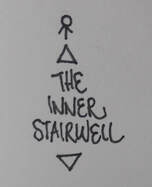|
In studying Tibetan Buddhism, particularly Dzogchen and Vajrayogini, I've come across one shocking statement that seem to now fit my current understanding. For the last couple of years, it seems that whenever I have a spiritual question, I tend to find an answer, which has only led me to seek higher truths. Nonetheless, one such assessment has to do with the worship of deities, including loved ones. According to the Tantric Master and teacher Geshe Kelsang Gyatso, Buddha Shakyamuni (Siddhartha Gautama) taught different teachings based on what the aspirant needed. These teachings are described in three categories: 1) teachings about karma for those looking for human happiness; 2) liberation for those seeking to unshackle samsara; and 3) enlightenment. From my studies of Advaita Vedanta, I've noticed the numerous discrepancies within that philosophy in comparison to most Hindu practices. The first major differentiation between the typical practices and advanced teachings that I've had to struggle with, is the concept of worshiping "deities". Raised Hindu, deity worship is essentially a staple. You go to the deities for everything. For as long as I can remember, my parents conduct prayers and light incense in front of their prayer space requesting blessings everyday. The favorites of course are Shiva (Hanuman), Krishna (Vishnu), Lakshmi, and Ganesha. Such deities are propagated for their ability to assist in daily human affairs. Nonetheless, it seems the more advanced philosophies dissolve these deities that I've grown up loving, including figures from different pantheons (including Jesus). Under Advaita Vedanta, there is only one reality, Brahman, with the spirit Higher Self Atman being the same. All else aside from Brahman is a product of illusion, maya. The illusion is designed as a way for the infinite to express and get to know itself. Nonetheless, all figures of worship, especially in form, are products of the illusion. Hence, we as individuals within the illusion, are similarly worshiping products of the illusion. At the essence of consciousness is "awareness" and all is consciousness. So basically, deity worship is "awareness worshiping awareness". Moreover, as Nisargadatta Maharaj had basically expressed to a seeker, in summation, "what do you think happens to your deities when you die and return to Brahman, are they not also dissolved into the great expanse?".
As a result, the teachings of Dzogchen and Vajrayogini seek the assistance of certain entities to help clear the inner channels, but ultimately only take refuge in the Three Jewels: 1) Buddha; 2) Dharma; and 3) Sangha. Simply put, take refuge in enlightenment, correct conduct, and emptiness. As Advaita Vedanta teaches control of awareness, Vajrayogini teaches a state of non-awareness, or emptiness. By refusing to place your awareness on any object, including Self, one is capable of accessing beyond the illusion. Basically, blow-out your field of awareness to achieve non-awareness. I assume that non-awareness is Nirvana. Though the teachings are heartbreaking in the sense you de-idolize beloved figures, all is for the better achievement of wisdom. Through understanding and recognizing their place within the illusion, I seek to pierce the veil for greater truths beyond our mundane existence. Kali remains as the Tantric deity of my choice as she has been my guide and seems to be an emanation of the Vajrayoginis. Like the Vajrayoginis, Kali is adorned with a garland of skulls symbolizing liberation of all sentient beings from maya/samsara. Nonetheless, I feel like I'm closer to the truth than I was yesterday. Seek enlightenment, be compassionate, and offer all desires to emptiness. ...First, having taken refuge in the Buddha, "not to bow down to other gods" means that if you bow down to mundane gods such as Mahadeva, Vishnu, Maheshvara, or others, your refuge vow is damaged. -Padmasambhava's Oral Instructions to Lady Tsogyal, Dakini Teachings. I had trouble with these teachings. Check out Part II.
0 Comments
Your comment will be posted after it is approved.
Leave a Reply. |
AuthorOverly educated and continuously exploring and revealing more behind the veil. "It cannot be too highly emphasized that the mystic swims in the same waters in which the psychotic drowns."
-James Wasserman, The Mystery Traditions Archives
August 2019
Categories
All
|

 RSS Feed
RSS Feed